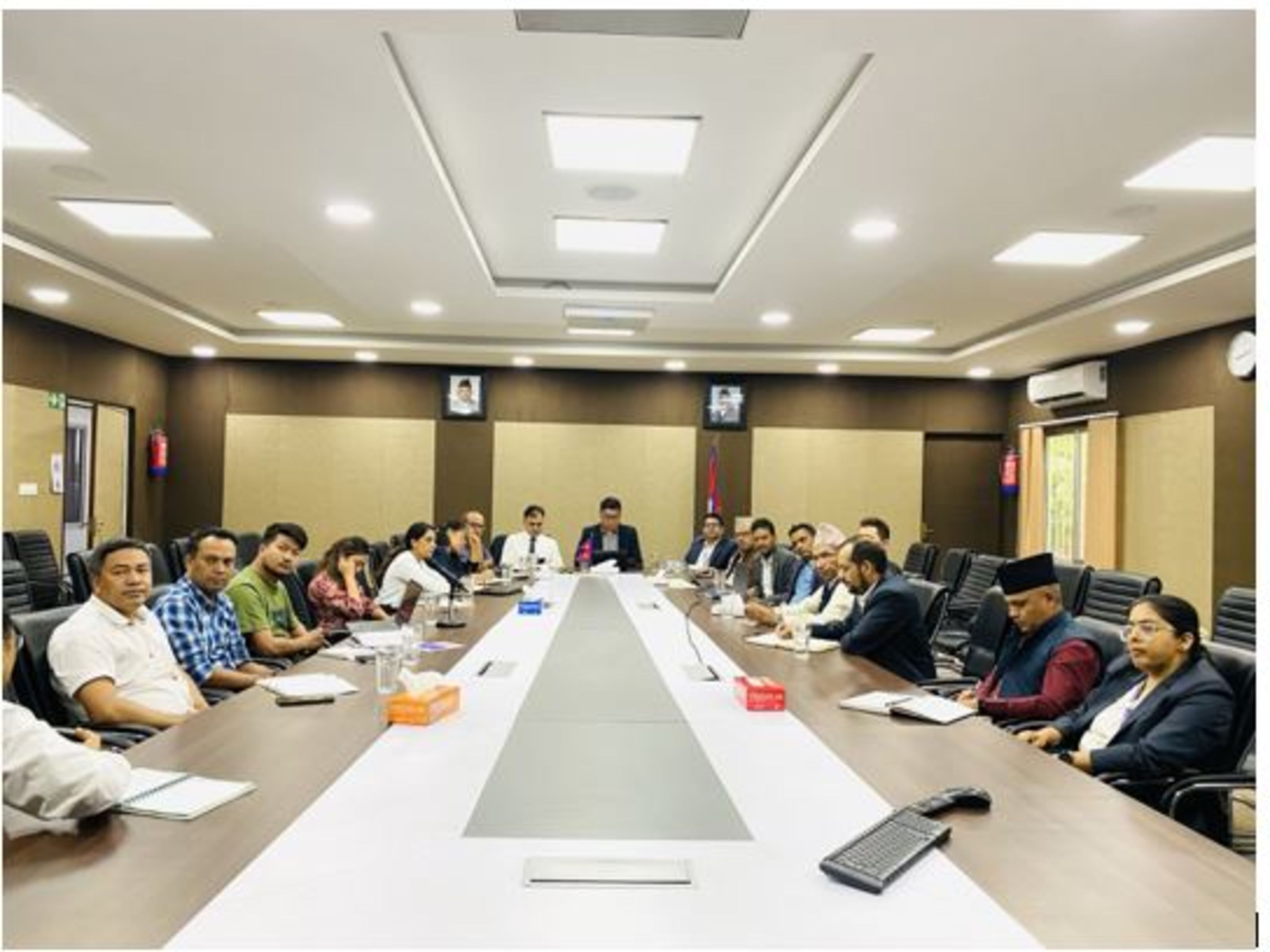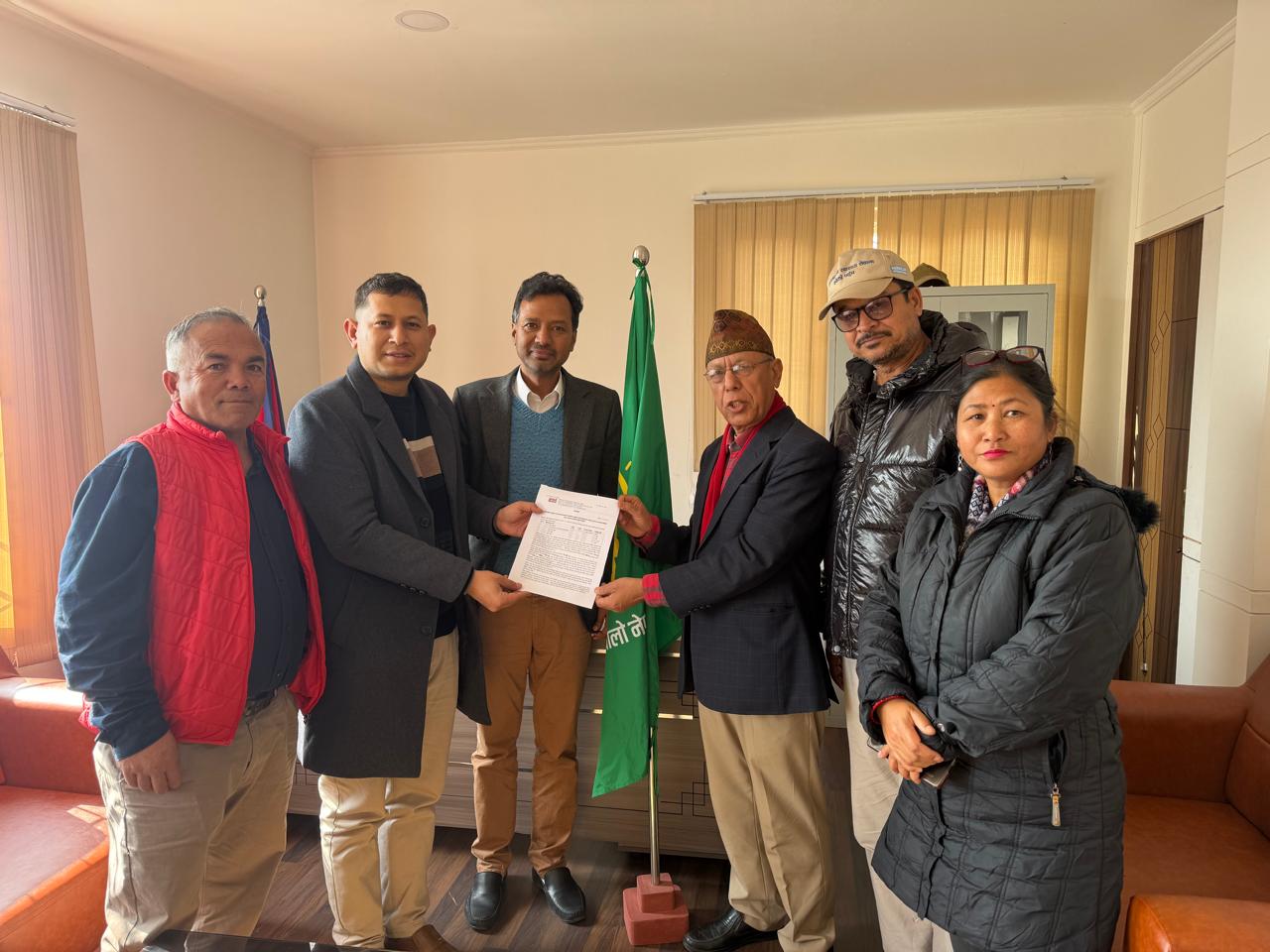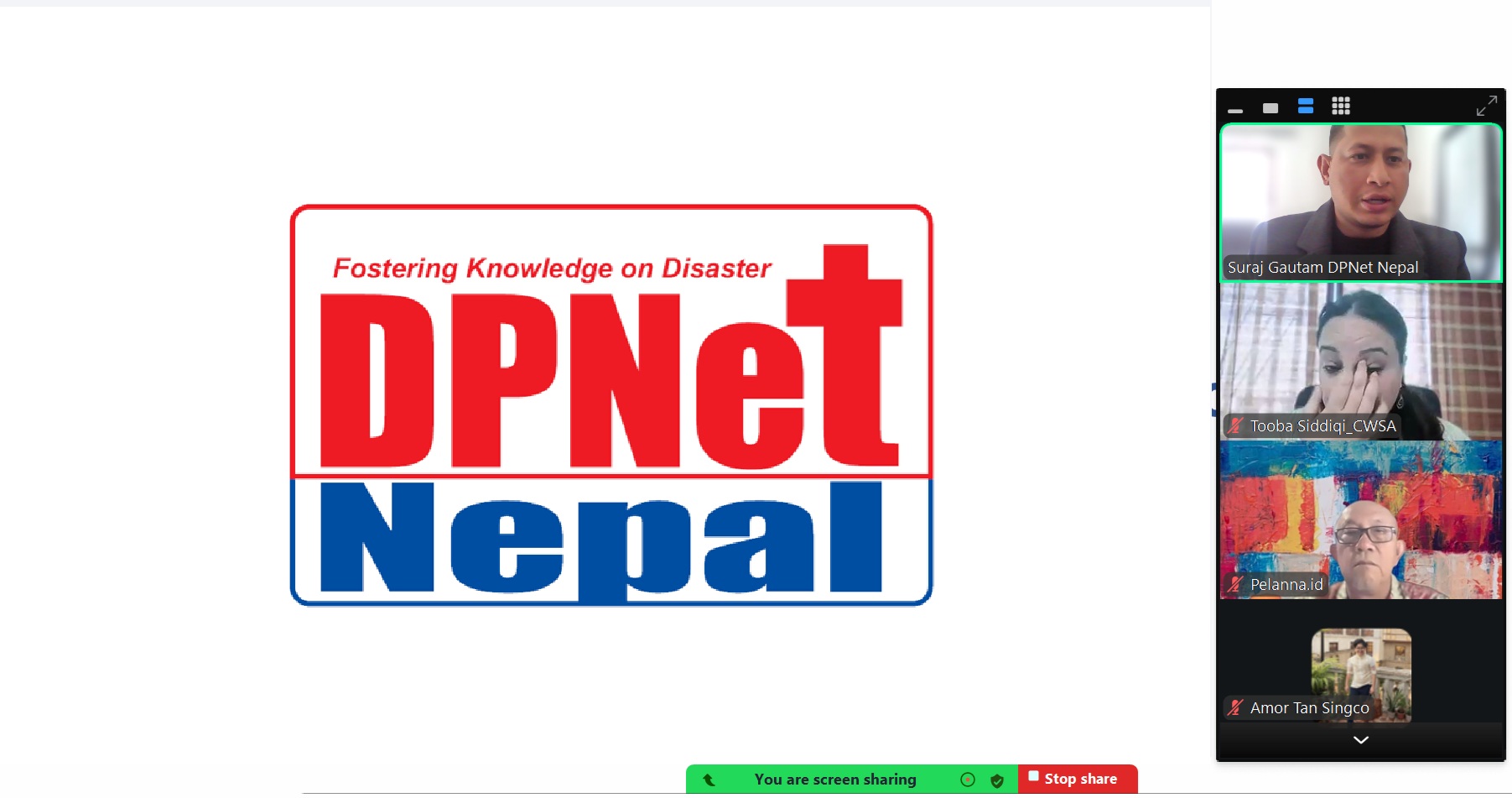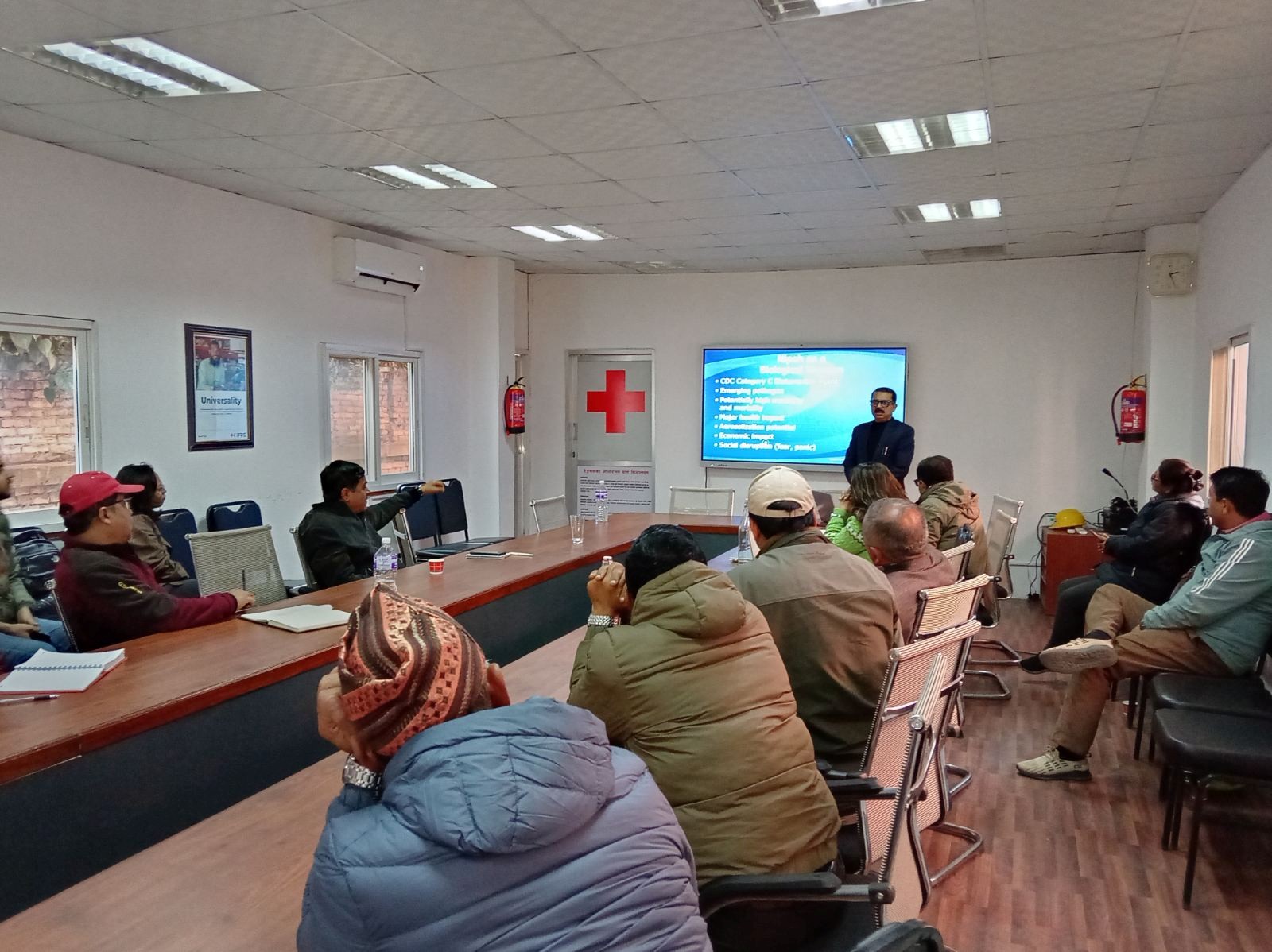DPNet Nepal Hosts Preparatory Meeting for APMCDRR 2024

On August 7, 2024, DPNet Nepal, acting as the Secretariat of the National Platform for Disaster Risk Reduction (NPDRR), coordinated a meeting to discuss the preparatory work for the upcoming Asia-Pacific Ministerial Conference on Disaster Risk Reduction (APMCDRR) 2024. The meeting was attended by key stakeholders, including Mr. Anil Pokhrel, Executive Chief of the National Disaster Risk Reduction and Management Authority (NDRRMA), and Dr. Bhisma Kumar Bhusal, Chief of the Disaster Management Division at the Ministry of Home Affairs (MoHA), along with various organizations.
Dr. Raju Thapa, Chairperson of DPNet Nepal, highlighted the importance of APMCDRR 2024 as an importnat platform for advancing DRR across the Asia-Pacific region, aligning efforts with the Sendai Framework's 2030 goals. He outlined the preparatory meeting's objectives, which included setting the stage for the conference, focusing on key areas such as disaster risk financing and inclusive governance, and encouraging multi-stakeholder collaboration. Dr. Thapa emphasized the need for sustainable investments in DRR, the integration of technology, and the convergence of DRR with climate and development efforts. He also highlighted Nepal’s participation, coordinated by DPNet under NPDRR, MoHA which involves developing a common position paper, raising funds through a basket fund, and ensuring visibility for all contributors. Additionally, Dr. Thapa called for the publication of the common position paper and official statement on international platforms, including ReliefWeb, and making them accessible through a webpage and a Braille version. He also requested MoHA and NDRRMA to consider hosting the next APMCDRR in Nepal, given the country's vulnerability to disasters and climate change.
Dr. Dharam Upreti, representing the AIN, stressed the importance of sharing Nepal’s outstanding achievements in DRR at APMCDRR. He shared his experience from APMCDRR 2022, where Practical Action set up a stall to showcase their work on early warning systems, and he encouraged thorough discussions in Nepal before attending the conference to ensure alignment among all participants. Similarly, Surya Bahadur Thapa, Chair of DPNet IPP and DiMaNN, highlighted the need for pre-consultation to prevent inconsistencies in the data and facts presented by different Nepali representatives at the international conference.
Mr. Anil Pokhrel reflected on the success of NPDRR's marketplace at APMCDRR 2022, which facilitated the sharing of Nepal's efforts in DRR. He suggested that Nepal could publish a National Disaster Report before attending APMCDRR 2024 and disseminate it during the conference. He also proposed the development of a comprehensive NPDRR website to promote the visibility of Nepal's DRR practices.
Dr. Bhisma Kumar Bhusal emphasized the importance of preparing a well-crafted position paper and official statement, noting that Nepal’s experiences and lessons learned would be valuable to other countries. He called for discipline and purpose among participants, urging them to create a positive impression of Nepal’s DRR efforts at APMCDRR.
The meeting concluded with some key decisions:
- Requesting all UN agencies and INGOs to contribute to a basket fund for APMCDRR preparatory work.
- Forming an APMCDRR Preparatory Committee chaired by NPDRR Chair Anil Pokhrel and other members Dr. Bhisma Kumar Bhusal, Chief of the Disaster Management Division at MoHA; Goma Chemjong from the NDRRMA; Santosh Dahal from the UNRCO; Sanjeev Shrestha from AIN; Umesh Dhakal from the NRCS ; Dr. Raju Thapa, Chairperson of DPNet Nepal; Surya Bahadur Thapa, Chair of DiMaNN; Kamala Panthi from the NPDRR Media Group; and Ishana Thapa from UN Women.
- Establishing an APMCDRR Position Paper Drafting Committee coordinated by NDRRMA’s Goma Chemjong from NDRRMA and other members including Dr. Basanta Adhikari representing the Academia Group, Dr. Dharam Upreti from AIN, Dr. Raju Thapa from DPNet Nepal, and Santosh Dahal from UNRCO.
Lastly, in his concluding remarks, Mr. Anil Pokhrel thanked all participants for their active involvement and officially closed the program.











